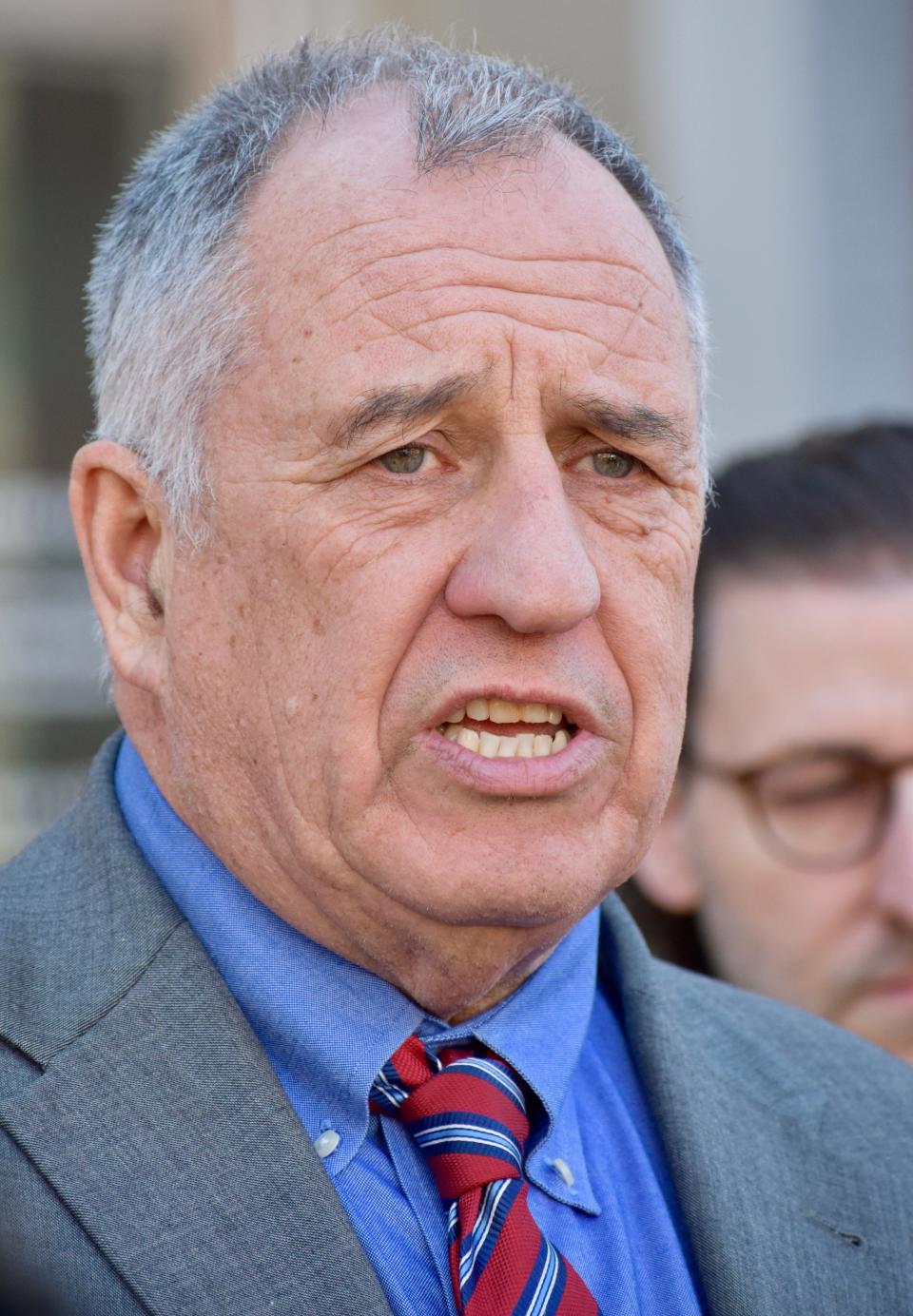The 'grandparent scam:' How to escape its clutches
Con artists have stolen millions of dollars from the elderly across the country through the "grandparent scam."
Hanson Police recently alerted the public that they were investigating two instances of the scam. The victims told police they had received a phone call from a man identifying himself as their grandson's lawyer. They were told the grandson had been in an accident and was being detained out of state.
And they were asked for cash to have their grandson released.
According to the FBI, there were over 92,000 older victims of fraud — including the grandparent scam — resulting in $1.7 billion in losses in 2021.
Bristol County DA Quinn said scam is 'devious, yet effective'
Bristol County District Attorney Thomas M. Quinn III said the devious, yet effective, scam is psychological and relies on startling the senior victims, catching them off guard.
"It inspires fear and concern. That's the whole purpose of it," he said.

Scammers often claim wire transfers, gift cards, or cryptocurrency is urgently needed to save the family member. A person posing as a courier or bail bondsman may arrive at the victim’s home to collect a pre-paid gift card, according to law enforcement officials.
These calls are often made at odd hours, when potential victims are less likely to think rationally and act more impulsively.
What to know: New Bedford couple falls victim to scam, loses $97,000. Here’s tips on how to protect yourself
Don't answer if caller is unknown
For more than eight years, Quinn has been visiting the county's senior centers to warn people about scammers looking to victimize them.
And he's told them about a simple yet effective way to avoid being scammed: Don't answer the phone if you don't know the caller's identity.
If you have answered the phone, step back from the urgent entreaties to send money.
Be disciplined, he said. Hang up and don't engage in the call.
If you want to say something, say, "I'll get back to you."
Then call the grandson or the parent.
And even in the highly unlikely circumstance that the grandson is in jail, he can sit it out for the night and be bailed out by a parent in the morning.
"The world won't end," Quinn said.
But a lawyer is not going to be making such a call. "It just doesn't work that way," Quinn said.

Scams against elderly keep evolving
The grandparent scheme has seemed to supplant the IRS scam in prevalence.Quinn said that scam was more regularly seen six or seven years ago.
"They would call and say it's the IRS. You owe money. If you don't pay, you're going to be arrested. There will be a warrant for your arrest, which is not true," Quinn said.
While that seems to have died off, a new weapon in the scammers' arsenal is very concerning - using artificial intelligence to clone the relative's voice.
"That's pretty scary because it becomes more real. You're dealing with vulnerable victims, people who are trusting," Quinn said.
It is important to report these scams, Quinn said.
Victims should initially reach out to their local police department.
Quinn said his office is also always available to call. Assistant District Attorney Michael Scott heads up the financial crimes unit.
Information on fraud prevention is also available online through the DA's elder abuse prevention unit.
The Massachusetts Office of Consumer Affairs and Business Regulation says you may also want to discuss the grandparent scam with your elderly relatives to warn them.
Red flags listed by Office of Consumer Affairs
International trouble phone call: The caller pretends to represent your grandchild who is in distress in a foreign country. They claim that a large amount of money will resolve the issue, or that the grandchild is desperate for money and doesn't want to ask parents.
Medical emergency phone call: The caller pretends to be a doctor or witness to an accident where your grandchild was severely injured. They demand a large wire transfer to initiate care or pay for medical bills.
Legal or arrest phone call: The caller impersonates an attorney or police officer and says your grandchild was arrested and faces serious charges. They ask for money for bail or to dismiss the case.
Other simple steps to avoid scam calls
Limit personal information shared on social media, including family member’s names and photos. That will reduce the amount of details a scammer can find out about you online.
Update privacy settings on social media accounts, and only share posts with friends and family you know.
Take advantage of your mobile phone’s call blocking and filtering applications. You can contact your provider if you are not sure what options are available.
Remember that a caller threatening or aggressively demanding payment through unconventional or difficult-to-trace methods is usually a scammer.
In addition to filing a complaint locally, the scam can be reported to the Federal Trade Commission at https://reportfraud.ftc.gov or by calling 202-326-222.
You can also file a complaint on unwanted calls and spoofing to the Federal Communications Commission at 1-888-225-5322.
More information on grandparent scams is also available on the Office of Consumer Affairs and Business Regulation’s website.
This article originally appeared on Standard-Times: A guide to avoiding the 'grandparent scam'

